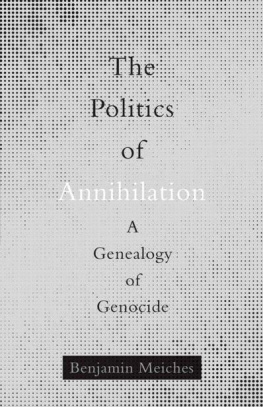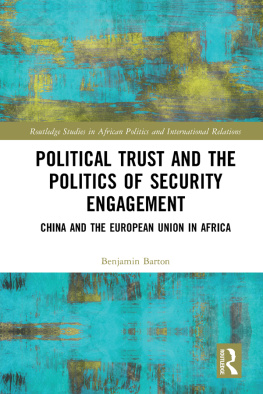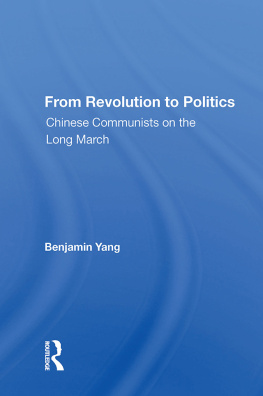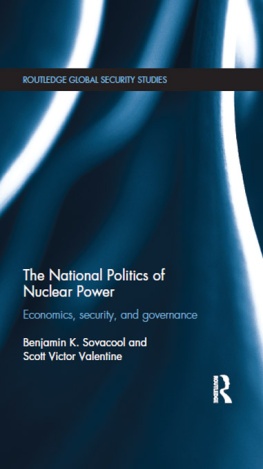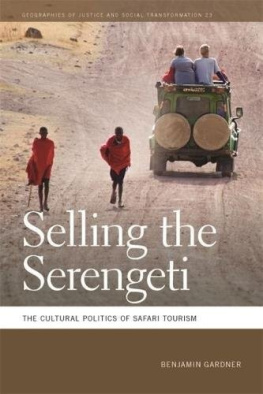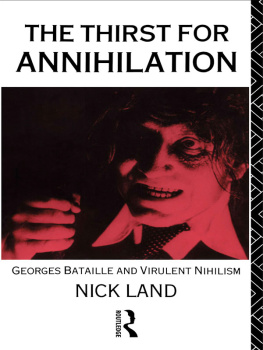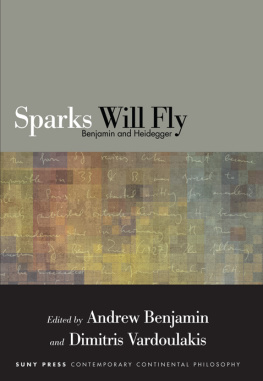Benjamin Meiches - The Politics of Annihilation
Here you can read online Benjamin Meiches - The Politics of Annihilation full text of the book (entire story) in english for free. Download pdf and epub, get meaning, cover and reviews about this ebook. year: 2019, publisher: University of Minnesota Press, genre: Politics. Description of the work, (preface) as well as reviews are available. Best literature library LitArk.com created for fans of good reading and offers a wide selection of genres:
Romance novel
Science fiction
Adventure
Detective
Science
History
Home and family
Prose
Art
Politics
Computer
Non-fiction
Religion
Business
Children
Humor
Choose a favorite category and find really read worthwhile books. Enjoy immersion in the world of imagination, feel the emotions of the characters or learn something new for yourself, make an fascinating discovery.
- Book:The Politics of Annihilation
- Author:
- Publisher:University of Minnesota Press
- Genre:
- Year:2019
- Rating:3 / 5
- Favourites:Add to favourites
- Your mark:
- 60
- 1
- 2
- 3
- 4
- 5
The Politics of Annihilation: summary, description and annotation
We offer to read an annotation, description, summary or preface (depends on what the author of the book "The Politics of Annihilation" wrote himself). If you haven't found the necessary information about the book — write in the comments, we will try to find it.
The Politics of Annihilation — read online for free the complete book (whole text) full work
Below is the text of the book, divided by pages. System saving the place of the last page read, allows you to conveniently read the book "The Politics of Annihilation" online for free, without having to search again every time where you left off. Put a bookmark, and you can go to the page where you finished reading at any time.
Font size:
Interval:
Bookmark:
Benjamin Meiches

University of Minnesota Press
Minneapolis
London
Copyright 2019 by the Regents of the University of Minnesota
All rights reserved. No part of this publication may be reproduced, stored in a retrieval system, or transmitted, in any form or by any means, electronic, mechanical, photocopying, recording, or otherwise, without the prior written permission of the publisher.
Published by the University of Minnesota Press
111 Third Avenue South, Suite 290
Minneapolis, MN 55401-2520
http://www.upress.umn.edu
The University of Minnesota is an equal-opportunity educator and employer.
Library of Congress Cataloging-in-Publication Data
Names: Meiches, Benjamin, author.
Title: The politics of annihilation : a genealogy of genocide / Benjamin Meiches.
Description: Minneapolis : University of Minnesota Press, 2019. | Includes bibliographical references and index.
Identifiers: LCCN 2018038882 (ebook) | ISBN 978-1-4529-5967-2 (ebook)
Subjects: LCSH: GenocidePhilosophy. | International crimes.
Classification: LCC HV6322.7 (ebook) | DDC 304.6/63dc23
LC record available at https://lccn.loc.gov/2018037437
To Albert and Muriel, Miriam and Nathan for their support and for their memories. And to Bebhinne and Adira for making me believe in this world each day.
- APBAtrocities Prevention Board
- CARCentral African Republic
- CKGRCentral Kalahari Game Reserve
- CRCCivil Rights Congress
- DRCDemocratic Republic of the Congo
- ECOSOCEconomic and Social Council (U.N.)
- FADISMAFaculdade de Direito de Santa Maria
- HIV/AIDSHuman immunodeficiency virus infection and acquired immune deficiency syndrome
- IACHRThe Inter-American Commission on Human Rights
- ICCInternational Criminal Court
- ICISSInternational Commission on Intervention and State Sovereignty
- ICJInternational Court of Justice
- ICTRInternational Criminal Tribunal for Rwanda
- ICTYInternational Criminal Tribunal for the former Yugoslavia
- IFIPInternational Funders for Indigenous Peoples
- ILCInternational Law Commission
- IMTInternational Military Tribunal
- ISRIntelligence, Surveillance, and Reconnaissance
- MAROMass Atrocity Response Operations
- MINUSTAHUnited Nations Stabilization Mission in Haiti
- NGOnongovernmental organization
- PILPGPublic International Law and Policy Group
- RCAPRoyal Commission on Aboriginal Peoples
- RPFRwandan Patriotic Front
- R2PResponsibility to Protect
- TRCTruth and Reconciliation Commission of Canada
- UDHRUniversal Declaration of Human Rights
- UNGCUnited Nations Convention on the Prevention and Punishment of the Crime of Genocide
- UNPROFORUnited Nations Protection Force
- USSRUnion of Soviet Socialist Republics
New conceptions require new terms.
Raphal Lemkin, Axis Rule in Occupied Europe: Laws of Occupation, Analysis of Government, Proposals for Redress
All concepts in which an entire process is semiotically concentrated elude definition; only that which has no history is definable.
Friedrich Nietzsche, On the Genealogy of Morals
I N J UNE 2002, the government of Botswana removed the last Basarwa from the Central Kalahari Game Reserve (CKGR) and forcibly relocated them to a settlement called New Xade.the government restarted the relocation campaign and the last Basarwa were moved to New Xade.
During the next decade the struggle over the Basarwas relocation revealed much about the complex relationships among transnational advocacy networks, domestic legal systems, corporate interests, historical narratives, private militias, postcolonial expectations, and international discussions about genocide. Shortly after their relocation, the Basarwa sued the government in the High Court of Botswana. The suit was organized by First People of the Kalahari, a local Basarwan initiative, but was funded by larger international humanitarian organizations such as Survival International. If the interests of the state, ethnic dominance, and international finance coincided, what chance could the Basarwa possibly have?
However, in both 2006 and 2011 the High Court of Botswana and the Botswana Court of Appeals respectively declared the relocation of the Basarwa unlawful, but neither decision significantly impacted governmental policy.
This use of the concept of genocide incited a series of controversies. Many domestic Botswanan groups felt the word was inappropriate given the treatment of the Basarwa. After all, they argued, there were no mass killings of the Basarwa nor had the state expressly forced them to abandon their identity. Other responses counseled against the use of the concept because of the comparatively small size of the Basarwan population (relative to the claims of an ongoing genocide in Darfur) and the fear that the label of genocide would trivialize more significant events. Of course, the government of Botswana denied the charge.politics. This emerging discourse moved the concept of genocide from the explicit claims of international law into the realm of political claims about the condition of the Basarwa and ultimately to reconceptualizing the complex historical and colonial forces that enabled this form of violence.
The debate surrounding the treatment of the Basarwa is a distinctively contemporary discourse, not because of recent changes in state policy or new media technologies that shed light on a previously unknown context, but because the language of genocide is itself relatively new. Raphal Lemkin first articulated the concept of genocide in his Axis Rule in Occupied Europe, originally published in 1944. This work was composed in the midst of the Second World War and principally documented the various legal changes in Nazi occupied Europe. The dispute over genocide in the context of the Basarwa is curious because the very terms of this debate are relatively new forms of political discourse, invented barely seven decades ago, and yet surprisingly potent, generating rapid bursts of anger and resentment on the part of many different parties while simultaneously stimulating jubilant expectation about the possibility for international political action. In short, what is shocking is not the content of the debate so much as the powerful expectations caught up with the language of genocide in comparison with the relative novelty of the term. Explaining why these disputes occur in this language, why the concept of genocide magnetizes such forceful desires, requires analyzing the history of the concept of genocide in order to trace how it acquired such importance in global politics.
Lemkin first defined genocide as the destruction of a nation or ethnic group that involved a coordinated plan of different actions aiming at the destruction of essential foundations of the life of national groups, with the aim of annihilating the groups themselves. He elaborates,
The objectives of such a plan would be disintegration of the political and social institutions, of culture, language,
In December of 1948, the concept of genocide became a part of international law with the creation of the United Nations Convention on the Prevention and Punishment of the Crime of Genocide (UNGC). Over the next half century, the language of genocide subsisted on the relative margins of political discourse until rapidly becoming a major part of international humanitarian and criminal discourse as a response to mass atrocities in Rwanda, Bosnia, and Sudan.
Font size:
Interval:
Bookmark:
Similar books «The Politics of Annihilation»
Look at similar books to The Politics of Annihilation. We have selected literature similar in name and meaning in the hope of providing readers with more options to find new, interesting, not yet read works.
Discussion, reviews of the book The Politics of Annihilation and just readers' own opinions. Leave your comments, write what you think about the work, its meaning or the main characters. Specify what exactly you liked and what you didn't like, and why you think so.

